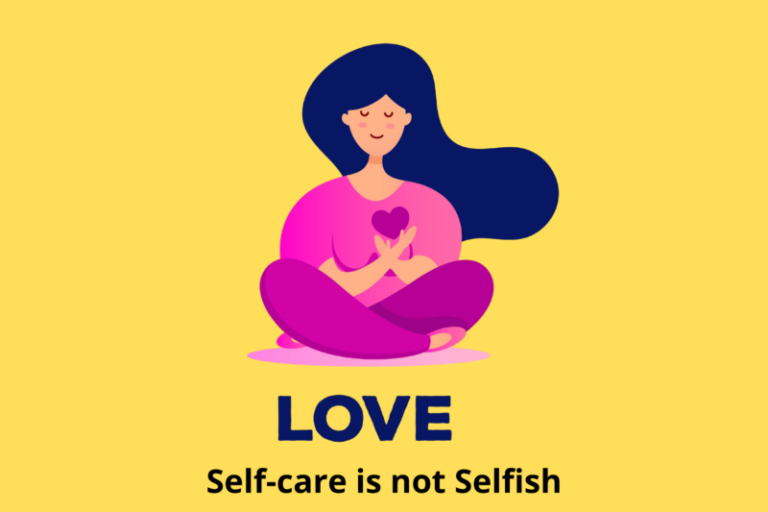What is Self-Care for Parents?
Defining Self-Care
Self-care refers to the actions and practices that individuals take to maintain and improve their physical, mental, and emotional well-being. For parents, self-care involves making time for activities that help reduce stress, recharge energy, and promote overall health. It’s about taking a step back from the constant demands of parenting and focusing on yourself—so you can better care for your family in the long run.
Why Self-Care is Crucial for Parents
As a parent, your well-being directly impacts your ability to care for your children and manage your family’s needs. Neglecting self-care can lead to burnout, stress, and exhaustion, making it harder to be patient, loving, and present for your children. By prioritizing your own health and happiness, you improve your energy, mindset, and ability to show up for your family. It’s not selfish—it’s essential for being the best version of yourself.
The Importance of Self-Care in Parenting
Preventing Burnout
Parenting is a marathon, not a sprint. Without regular self-care, it’s easy to fall into burnout—feeling physically drained, mentally exhausted, and emotionally depleted. Burnout can lead to irritability, frustration, and an overall sense of being overwhelmed. Taking time for yourself helps prevent this burnout, ensuring that you can continue to be present for your children while also staying energized and focused.
Enhancing Emotional Well-being
Parenting can be emotionally taxing. From comforting a crying baby to navigating teenage moods, parents are constantly managing their own emotions while dealing with their children’s emotional needs. Engaging in self-care practices helps to regulate your own emotions, boost your mood, and reduce stress. This emotional balance allows you to respond to your child’s needs in a calm, empathetic way.
Setting a Healthy Example for Children
When parents practice self-care, they set a powerful example for their children. By taking care of your physical and mental health, you show your kids that self-respect and self-compassion are important. It teaches them to prioritize their own well-being and to recognize the value of balance in their lives.
Types of Self-Care for Parents
Physical Self-Care
Physical self-care involves taking steps to improve your physical health and energy levels. This includes activities like exercise, eating nourishing meals, getting enough sleep, and practicing relaxation techniques. Regular physical activity, even a short walk, can reduce stress, improve mood, and boost energy levels, helping you stay physically fit and energized.
Mental and Emotional Self-Care
Mental and emotional blah bethany.com focuses on maintaining your emotional health and mental clarity. This might include practicing mindfulness or meditation, journaling, or taking a break from negative news or social media. It’s about finding ways to clear your mind, reduce anxiety, and process your emotions in a healthy way.
Social Self-Care
Social self-care involves maintaining connections with others who support and uplift you. This could mean spending time with friends, connecting with family, or participating in community activities. Strong social connections provide emotional support, boost feelings of belonging, and allow you to share experiences and relieve stress.
Spiritual Self-Care
Spiritual self-care is about nurturing your inner self and connecting to something greater than yourself. This may look different for each person, whether it’s attending religious services, spending time in nature, practicing gratitude, or engaging in activities that bring you peace. Spiritual self-care helps to provide meaning, purpose, and a sense of calm.
Overcoming Barriers to Self-Care
Lack of Time
One of the biggest barriers to self-care is the perceived lack of time. Between work, chores, school runs, and other family responsibilities, it can feel impossible to find time for yourself. However, self-care doesn’t have to involve hours of free time. Small, simple acts of self-care—like taking five minutes to breathe deeply or enjoying a quiet cup of tea—can make a big difference.
Guilt and Expectations
Many parents feel guilty about taking time for themselves, believing that they should always be focused on their children or family needs. Overcoming this guilt is crucial for your well-being. Remember, when you take care of yourself, you are better equipped to take care of your family. Setting realistic expectations for yourself and understanding that self-care is a vital part of parenting will help alleviate these feelings of guilt.
Lack of Support
Not having enough support from a partner, family, or friends can make it difficult to find time for self-care. If you’re feeling isolated, it’s important to seek out support networks—whether it’s joining a parenting group, asking a friend to help with childcare, or talking to a counselor. Having a strong support system allows you to share the load and gives you the space you need to recharge.
Practical Self-Care Tips for Busy Parents
Time Management
Effective time management is key to finding time for self-care. Try setting boundaries around your time, such as scheduling specific moments in the day for yourself, even if it’s just for 10 minutes. Plan activities that align with your needs—whether it’s a workout, reading, or simply relaxing. Use a calendar or planner to organize tasks so that you can make room for both responsibilities and relaxation.
Simple Relaxation Techniques
Relaxation doesn’t always require long hours or complex activities. Practice deep breathing, stretch your muscles, or take a quick nap. Techniques like guided meditation or progressive muscle relaxation can help reduce stress in just a few minutes. These small, simple activities can reset your mind and body, making a big difference in how you feel throughout the day.
Asking for Help
Don’t be afraid to ask for help. Whether it’s from your partner, family members, or friends, sharing the responsibilities of parenting can give you the breathing room you need. Having someone you trust to step in for a little while allows you to focus on self-care without feeling overwhelmed.
The Benefits of Regular Self-Care
Increased Energy and Focus
When you regularly practice self-care, you’ll notice an increase in energy and focus. Taking time for yourself restores your physical and mental health, allowing you to be more present and engaged with your children. You’ll be able to respond to challenges with more patience and clarity.
Improved Relationships
Self-care improves relationships because it allows you to approach family dynamics with more empathy, patience, and positivity. When you feel your best, you’re more likely to interact with your children and partner in a nurturing, supportive way, fostering stronger, healthier relationships.
Enhanced Parenting Skills
When parents prioritize self-care, they develop greater emotional resilience and a more positive mindset. This translates into better decision-making, problem-solving, and conflict resolution, ultimately making you a more effective and compassionate parent.
Conclusion
Self-care for parents is not just a luxury—it’s a necessity. By taking care of your physical, mental, and emotional health, you ensure that you can give your best to your children and family. Regular self-care prevents burnout, enhances well-being, and sets a healthy example for your kids. While it can be challenging to make time for yourself, even small acts of self-care can lead to big benefits for your overall happiness and parenting success.




:max_bytes(150000):strip_icc()/discipline-strategies-for-tweens-4115350-1529d99ab8ac4c4481e62934f83457d7.png)